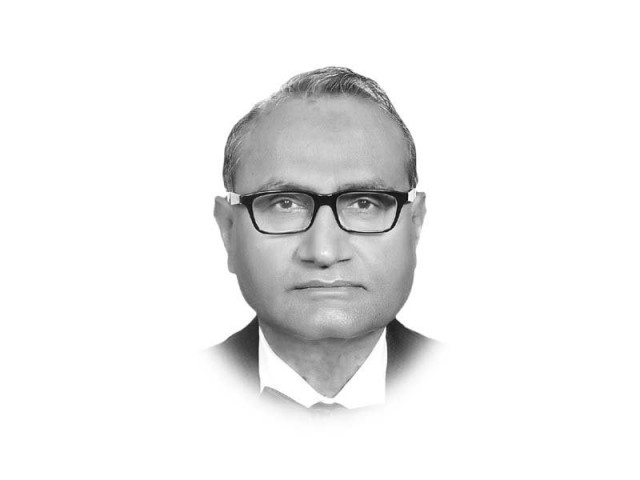An example in doing without the IMF
Development is constrained not by resources but by bad governance

The writer is a senior economist. He can be contacted at pervez.tahir@tribune.com.pk
An eminent speaker, Mr Shoaib Sultan Khan, read out from Mr Qureshi’s well-known but little-read book Governance Deficit: A Case Study of Pakistan, an extremely interesting paragraph of contemporary relevance.
It relates to the period of Nawaz Sharif, Mark I. At that time, Mr Saeed Qureshi was heading the Ministry of Finance. He writes, “There is a little known fact that during his tenure, Pakistan faced the most critical foreign exchange crisis in its history.
With the Persian Gulf War that started in 1990 the flow of foreign funds completely dried up, as Pakistan had not joined the anti-Iraq coalition. A stage was reached when reserves fell to a microscopic level of $40 million, a secret known only to the Ministry of Finance, not even to the Cabinet Ministers. Yet, a liberal import policy was maintained.
There was no default in debt servicing. The foreign exchange deposits made by other countries were returned promptly on maturity. Pakistan managed to maintain a state of confidence, while it was on the verge of bankruptcy.
The most serious foreign exchange crisis in the country’s history was handled without the slightest support from multilateral or bilateral donors, a good job done by the Ministry. It remained unrecognised because of secrecy.” Sounds familiar, except that the confidence and competence of Mr Qureshi and his team is lacking in managing the current account deficit.
In the case of the other twin, the fiscal deficit, Mr Qureshi believed that financial discipline was as important as military discipline. But the military is also the second largest claimant on the budget.
The greater this claim, the greater is the borrowing that makes debt servicing the largest claimant. He was able to communicate with the military chiefs about the social cost of the rising defence budget. To reduce the burden of military pensions, he proposed extending the tenure of the lower ranks by two years.
The military accepted the proposal, but wanted to make it optional, which in Mr Qureshi’s view would yield no saving. He was right, as there were no takers for the option. He succeeded in fixing ceilings on the budgets of the three services and brought Fauji Foundation in the income tax net in 1992.
“The Army Chief asked for a review on the ground that the organisation was spending large sums of money on the welfare of ex-servicemen. The Ministry of Finance offered to make the welfare expenditure tax deductible. That closed the chapter.”
He opposed the yellow cab scheme of Nawaz Sharif and the pet political programmes of Benazir Bhutto. In a meeting of federal secretaries called by her, Mr Qureshi advised “a balance between efficiency and loyalty in dealing with bureaucracy, a balance between the formal and informal decision in shaping the policies, and a balance between constituency and government in determining priorities.”
He related this story in a meeting with Lee Kwan Yew, the legendary Prime Minister of Singapore. To Lee Kwan Yew’s query as to the reaction of Benazir, Mr Qureshi responded, “She shunted me out from the Ministry of Finance to Ministry of Commerce.”
Development is constrained not by resources but by bad governance. As he put it in his 1979 publication, Challenges and Issues in Development Planning, “The prime obstacles to development are the institutional deficiencies and not the shortage of economic resources.”
Published in The Express Tribune, April 19th, 2019.
Like Opinion & Editorial on Facebook, follow @ETOpEd on Twitter to receive all updates on all our daily pieces.
















COMMENTS
Comments are moderated and generally will be posted if they are on-topic and not abusive.
For more information, please see our Comments FAQ